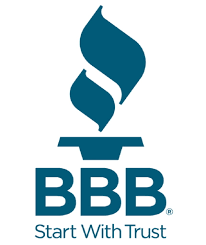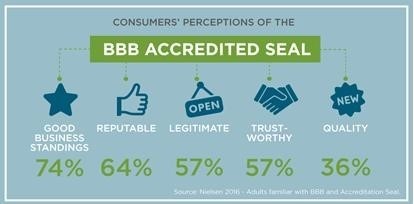
SOUTHFIELD, MI - June 5, 2018 – A new report by Better Business Bureau (BBB) says sweepstakes, lottery and prize schemes are devastating victims financially and emotionally with ever-evolving methods. These frauds concentrate on seniors, targeting them by direct mail, cold calling, social media, even text messages and smartphone pop-ups. BBB warns consumers to be on guard against these serious and pervasive frauds and their perpetrators.
The report – “Sweepstakes, Lottery and Prize Scams: A Better Business Bureau Study of How ‘Winners’ Lose Millions Through an Evolving Fraud” – notes these scams bilked $117 million out of half a million Americans and Canadians in 2017 alone, with actual victims and losses likely numbering much higher. BBB received 2,820 sweepstakes and lottery scam reports in Scam Tracker in 2017, with a median loss of $500. Seniors are the most frequent target and suffer the largest losses by far in these scams, which the report found commonly originate in Jamaica, Costa Rica and Nigeria.
The report recommends stronger law enforcement efforts on three fronts -- in Jamaica, which has seen an upswing in violence related to lottery fraud profits; in the U.S., where law enforcement is urged to step up extraditions and prosecutions of overseas fraudsters operating in the U.S.; and globally, as law enforcement agencies worldwide are encouraged to take steps toward holding deceptive mailing organizations accountable and stopping fraudulent mail. It also urges Facebook and other social media platforms to take steps to weed out fake, fraudulent profiles and make fraud reporting easier.
“While you often have to purchase a ticket to enter a lottery, a legitimate lottery or sweepstakes will never ask its winners to wire money to claim the prize,” said Melanie Duquesnel, Detroit BBB president and CEO. “People normally fall for these types of scams because of their desire to win big. When in reality, the victims end up losing much more than they bargained for.”
Among the Detroit area victims is a woman who was told in a 2017 phone call that she had won a sweepstakes prize. She deposited money in a Bank of America account to receive her “winnings,” as callers insisted she needed to pay fees and taxes on the prize. Once the money was deposited, she stopped receiving calls and the phone numbers she had for the “company” was disconnected. Ultimately, she lost over a thousand dollars.
BBB Serving Eastern Michigan and the Upper Peninsula have received over 75 reports of sweepstakes, lottery and prize fraud through BBB Scam Tracker. Consumers reported losing thousands of dollars with one person losing as much as $5,237. The actual number of victims and losses is likely much larger.
Among the report’s key findings:
1. The majority of lottery or sweepstakes scam victims are between 65 and 74 years old. Among that age group, people who recently experienced a serious negative life event, and who expect their income in the near future to remain steady or decline, are even more likely to be victimized.
2. Sweepstakes/lottery fraud can strike through many channels – phone calls, text messages, pop-ups on a smartphone’s Internet browser, social media and mailings.
3. In 2017, 2,820 individuals reported sweepstakes and lottery scams to BBB Scam Tracker. These reports show a median loss of $500, with wire transfer as the most frequent method of payment.
4. Jamaica is a major source of “cold calls” to victims who are told they have won money. Although similar calls come from Costa Rica, the scam has had a major impact in Jamaica, where the amount of money generated by lottery fraud has resulted in gang wars between rival fraud groups, leading to a dramatic spike in violence. More than 95 percent of reported fraud in Jamaica involves lottery or sweepstakes scams.
The report was written by C. Steven Baker, BBB International Investigations Specialist. Baker is the retired director of the Federal Trade Commission’s Midwest Region. In his role with BBB, Baker is working with an alliance of five BBB’s in analyzing and reporting on some of the most pervasive fraud issues that impact American consumers. Studies on puppy scams, tech support scams, and romance scams he authored were met with worldwide media coverage.
BBB offers the following tips for consumers to avoid being caught in lottery or sweepstakes fraud:
True lotteries or sweepstakes don’t ask for money. If they want money for taxes, themselves, or a third party, they are most likely crooks.
Call the lottery or sweepstakes company directly to see if you won. Publishers Clearing House (PCH) does have a sweepstakes but does not call people in advance to tell them they’ve won. Report PCH imposters to their hotline at 800-392-4190.
Check to see if you won a lottery. Call the North American Association of State and Provincial Lotteries at 440-361-7962 or your local state lottery agency.
Do an internet search of the company, name, or phone number of the person who contacted you.
Law enforcement does not call and award prizes.
Talk to a trusted family member or your bank. They may be able to help you stay in control of your money in the face of fraudster pressure.
About Better Business Bureau Serving Detroit & Eastern Michigan
Better Business Bureau Serving Detroit & Eastern Michigan is a non-profit organization with the purpose of promoting trust in the marketplace by assisting in the protection of consumers and businesses from fraud and unethical business practices. In addition to its recognized dispute resolution services, the BBB maintains online business reviews on the customer service history of more than 90,000 local businesses and provides consumer education materials on numerous topics. The BBB provides its services free to the public and its service territory stretches across Eastern Michigan from Ann Arbor through Metropolitan Detroit, Lansing, Flint, upward to Alpena, and covers the entire Upper Peninsula of the state.

# # #
About Better Business Bureau Serving Eastern Michigan and the Upper Peninsula Better Business Bureau Serving Eastern Michigan and the Upper Peninsula is a non-profit organization with the purpose of promoting trust in the marketplace by assisting in the protection of consumers and businesses from fraud and unethical business practices. In addition to its recognized dispute resolution services, BBB maintains business reviews on the customer service history of more than 85,000 local businesses and provides consumer education materials on numerous topics. BBB provides its services free to the public and its service territory stretches across Eastern Michigan from Ann Arbor through Metropolitan Detroit, Lansing, Flint, upward to Alpena, and covers the entire Upper Peninsula of the state.












